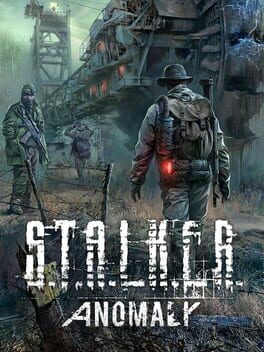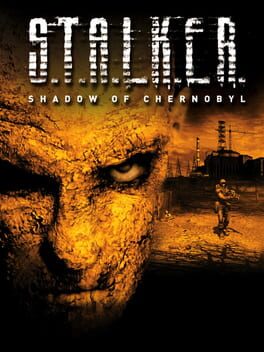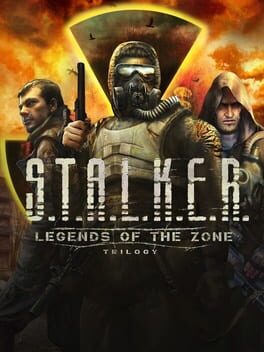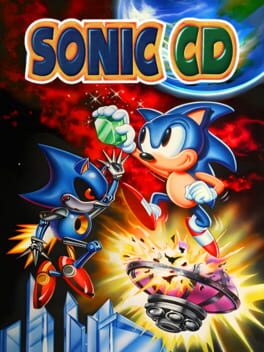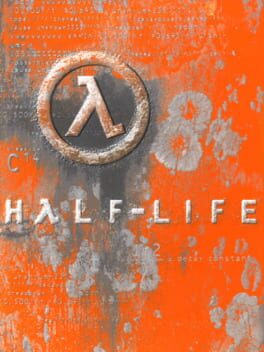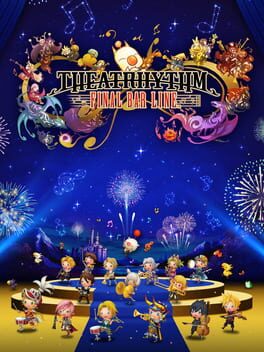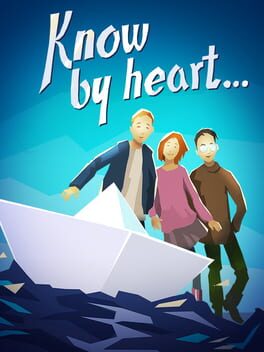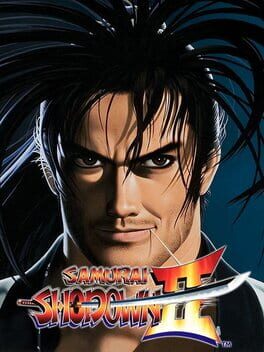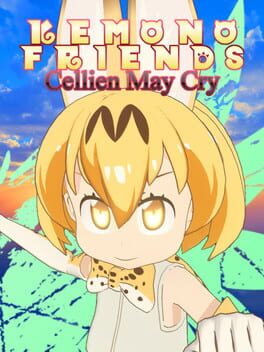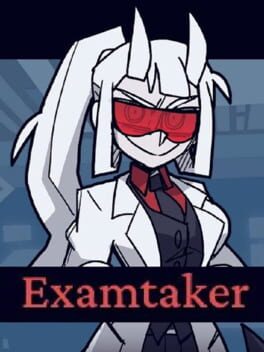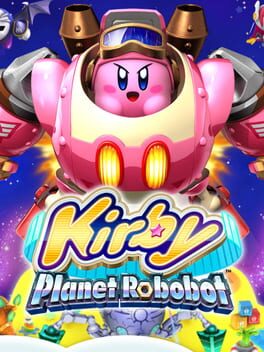mousepotato
27 reviews liked by mousepotato
Indika
2024
Indika is a very short (~4hrs) walking game filled with puzzles and thought-provoking dialogue. Oh, the brilliant voice acting in this game... I loved the emotions that the 'narrator' put into his work. The ending leaves you hanging with questions in your mind. There are many scenes where you can't get what's happening because it's confusing or because it happens too fast.
I also want to state that I dissected the game and they animated every scene; characters are moving even when you don't see them in cutscenes or in the game. And the demon is also a part of some cutscenes, but you can't see it. They put real effort into this game. It's sad that it was short.
The downsides were pretty much the optimization and some less-polished parts of the game.
I also want to state that I dissected the game and they animated every scene; characters are moving even when you don't see them in cutscenes or in the game. And the demon is also a part of some cutscenes, but you can't see it. They put real effort into this game. It's sad that it was short.
The downsides were pretty much the optimization and some less-polished parts of the game.
Pulled from my full retrospective: https://www.youtube.com/watch?v=aGd-vhg0AZE
S.T.A.L.K.E.R., as I’ve come to see - and more or less appreciate it, is an impressive waste of time. Everything it boasts, from the gunplay and the realism to the immersive systems and the atmospheric open world, is all just a space to exist in for however long you see fit, until you get bored with the loop and find something else to do. It presents a wild, open world full of infinite possibilities (of things to kill, or things that will kill you), and a list of mechanics and systems that you’re seemingly not supposed to understand without trial and error and frequent quick-saves. It requires a lot of time and patience and commitment, and I feel that I gave it the amount of time it deserved before giving my thoughts a three-year-deep conclusion.
S.T.A.L.K.E.R. (the game), is little more than an aesthetic, comparative to its genre peers. It implies a deeper message, but only through its proximity to these other works, considering its title and setting. What S.T.A.L.K.E.R. seems to aim for thematically is on par with Fallout’s frontier-fantasy; isn’t it mysterious and sexy to have full reign over this barren landscape that used to be a civilization? Isn’t it fun to think about returning to zero, carrying nothing but a backpack and a gun into the wide unknown? Here we’re shown less the effects of war on society, and more a wonderland for grizzled gun-toting men, survivors who are here for the same mechanical reason as the player - they like shooting things too. Inherently, as a piece of interactive media focused more on open, immersive mechanics than a linear story, it seems more interested in being a military simulation in a “cool setting” than a rumination on why that setting exists in the first place, much less what it symbolizes. It’s a reaction to the aesthetic trend of nuclear media, the allure of tragedy and the speculation around the effects of nuclear energy, and the inevitable horror genre tropes that fill in the gaps and begin to form the fear into something shiny and profitable.
“The zone” is often as beautiful as it is ugly and static, and I found myself getting enraptured by Anomaly’s weather effects and skyboxes as often as I was disappointed with the emptiness and ugliness of an area I thought I’d take the time and resources to explore. The world is also incredibly hostile to its inhabitants, in a way that pursues “realism,” but in the process loses track of why it exists at all. The openness is presented as a space of limitless opportunity, but for what? The answer, of course, is to “be a part of the world,” which is enacted through the game’s verbs by walking for a period of time, then shooting a gun, then walking somewhere else. This openness, also, provokes a classic form of open world burnout. You’re provided with so much to do (in the form of walking, shooting, and then picking things up) that you quickly lose yourself in the loop of trying to make your numbers go up (namely encumbrance, which translates to money). With a higher number (money), you can build up equipment that allows you to go further without having to reload a save after getting one-shot - or at the very least mortally wounded by anything you come across, or anything that (thanks to the immersive world design) comes after you. This is an expensive process, both for you as a player and “you” as a stalker, and will necessitate running back and forth across several maps doing fetch quests, finding filler items to sell (that might be useful, or might just have flavor text that alludes to being useful, we’ll never tell), and trying not to get encumbered.
I’ve done my time in the zone, I’ve lived in it for a period, explored its secrets, even if I haven’t “beaten” S.T.A.L.K.E.R. in whatever form it wants to be beaten. I will probably still think about it, maybe gratuitously return to it for a few hours, try and see if there’s anything else hidden in its world. In the end, maybe this version of the zone just isn’t for me, maybe I’ll never find what I want hiding somewhere deep inside it, and maybe it wasn’t ever meant to be any deeper than “just a game.” Given S.T.A.L.K.E.R. 2’s upcoming release, the developers’ lack of reservations about NFTs, and the series’ target fanbase of hunter-killers, maybe no zone will ever live up to the ruminative fantasy I keep in my head and heart. Perhaps Chernobyl’s exclusion zone is fated, ironically, to be a constant mystical battleground, an aesthetic backdrop for yet another survival shooter game, an untouched, unruled place full of limitless violent possibilities. In the meantime, in the real world, maybe we can continue to cope with the doors that cannot be closed behind us, and hopefully learn from our mistakes and our history of violence, and prevent such a prospective future from befalling us before we inevitably get another triple-A post-nuclear frontier survival experience for the cost of $70, a thousand layoffs, a handful of crunch hospitalizations, and our dignity as artists.
S.T.A.L.K.E.R., as I’ve come to see - and more or less appreciate it, is an impressive waste of time. Everything it boasts, from the gunplay and the realism to the immersive systems and the atmospheric open world, is all just a space to exist in for however long you see fit, until you get bored with the loop and find something else to do. It presents a wild, open world full of infinite possibilities (of things to kill, or things that will kill you), and a list of mechanics and systems that you’re seemingly not supposed to understand without trial and error and frequent quick-saves. It requires a lot of time and patience and commitment, and I feel that I gave it the amount of time it deserved before giving my thoughts a three-year-deep conclusion.
S.T.A.L.K.E.R. (the game), is little more than an aesthetic, comparative to its genre peers. It implies a deeper message, but only through its proximity to these other works, considering its title and setting. What S.T.A.L.K.E.R. seems to aim for thematically is on par with Fallout’s frontier-fantasy; isn’t it mysterious and sexy to have full reign over this barren landscape that used to be a civilization? Isn’t it fun to think about returning to zero, carrying nothing but a backpack and a gun into the wide unknown? Here we’re shown less the effects of war on society, and more a wonderland for grizzled gun-toting men, survivors who are here for the same mechanical reason as the player - they like shooting things too. Inherently, as a piece of interactive media focused more on open, immersive mechanics than a linear story, it seems more interested in being a military simulation in a “cool setting” than a rumination on why that setting exists in the first place, much less what it symbolizes. It’s a reaction to the aesthetic trend of nuclear media, the allure of tragedy and the speculation around the effects of nuclear energy, and the inevitable horror genre tropes that fill in the gaps and begin to form the fear into something shiny and profitable.
“The zone” is often as beautiful as it is ugly and static, and I found myself getting enraptured by Anomaly’s weather effects and skyboxes as often as I was disappointed with the emptiness and ugliness of an area I thought I’d take the time and resources to explore. The world is also incredibly hostile to its inhabitants, in a way that pursues “realism,” but in the process loses track of why it exists at all. The openness is presented as a space of limitless opportunity, but for what? The answer, of course, is to “be a part of the world,” which is enacted through the game’s verbs by walking for a period of time, then shooting a gun, then walking somewhere else. This openness, also, provokes a classic form of open world burnout. You’re provided with so much to do (in the form of walking, shooting, and then picking things up) that you quickly lose yourself in the loop of trying to make your numbers go up (namely encumbrance, which translates to money). With a higher number (money), you can build up equipment that allows you to go further without having to reload a save after getting one-shot - or at the very least mortally wounded by anything you come across, or anything that (thanks to the immersive world design) comes after you. This is an expensive process, both for you as a player and “you” as a stalker, and will necessitate running back and forth across several maps doing fetch quests, finding filler items to sell (that might be useful, or might just have flavor text that alludes to being useful, we’ll never tell), and trying not to get encumbered.
I’ve done my time in the zone, I’ve lived in it for a period, explored its secrets, even if I haven’t “beaten” S.T.A.L.K.E.R. in whatever form it wants to be beaten. I will probably still think about it, maybe gratuitously return to it for a few hours, try and see if there’s anything else hidden in its world. In the end, maybe this version of the zone just isn’t for me, maybe I’ll never find what I want hiding somewhere deep inside it, and maybe it wasn’t ever meant to be any deeper than “just a game.” Given S.T.A.L.K.E.R. 2’s upcoming release, the developers’ lack of reservations about NFTs, and the series’ target fanbase of hunter-killers, maybe no zone will ever live up to the ruminative fantasy I keep in my head and heart. Perhaps Chernobyl’s exclusion zone is fated, ironically, to be a constant mystical battleground, an aesthetic backdrop for yet another survival shooter game, an untouched, unruled place full of limitless violent possibilities. In the meantime, in the real world, maybe we can continue to cope with the doors that cannot be closed behind us, and hopefully learn from our mistakes and our history of violence, and prevent such a prospective future from befalling us before we inevitably get another triple-A post-nuclear frontier survival experience for the cost of $70, a thousand layoffs, a handful of crunch hospitalizations, and our dignity as artists.
Shadow of Chernobyl is a game that is frequently at odds with itself. If it's not impressive on the basis of its ambitions alone, then it's outright apparent that it's the result of two conflicting visions: that of a game studio eschewing its trappings to push boundaries others weren't willing to, even if the developers weren't getting paid very well, and that of a game publisher that was tired of waiting. The dichotomy between these camps sullies the experience the more you play Shadow of Chernobyl. So much of it feels so haplessly thrown together that it becomes hard to know what was kept in to make the experience feel as hopeless as it ultimately is and what just so happened to have that effect. The Ranking system, for example, is a unique concept that ties into the game's early fascination with NPC interactions. I looked at it once at the start of my playthrough, one more time out of curiosity after playing the game for ten hours, and never again. But if you scratch past these layers and try to see what the developers were trying to make behind the scenes... it still feels confused. The unfortunate reality is that, by trying to be as fresh as possible, there’s a significant chance your first attempt will end up clumsy.
The biggest problem Shadow of Chernobyl faces is that its mixture of non-linear exploration and linear set-pieces rarely coalesce. Instead, the game often feels like it’s trying to be three things at once. In one hand, it’s a game about stats and MMO-lite questing/looting for the best equipment you can get with your limited inventory space. In the other, it’s a linear shooter with a high level of difficulty that occasionally goes full-corridor and will have you quicksaving every five seconds. By the feet, it’s a sci-fi-flavored mystery that tries to pull you in on the basis of its landscapes alone. The resulting mixture is a game that expects you to explore and do side-questing to understand several of its key mechanics in its opening moments while a giant arrow in the top-left corner of the screen is telling you to do anything else. Paired with how limited exploration can be, and it quickly becomes an experience that feels more distracted than it should be.
Thankfully, there are still aspects of it that hold up. Although it’s occasionally held back by grating, repetitive sound effects, and voice lines, it’s the intoxicating atmosphere and art direction that keeps the experience from falling apart. There is a damn good reason that this is what S.T.A.L.K.E.R. has become synonymous with. From the moody, blocky grays of the bar area to the ways in which the metal roofs of a couple of warehouses split apart, everything about The Zone feels authentically oppressive. Vast and typically quiet stretches of land are hardly the oases they would be in another game, as they’re often doused in hardly bright hues. Other creative decisions, such as non-diegetic music in the bar area, cause each space to feel lived in. Pair that with the convincing behavior of AI opponents, such as roaming dogs, and it’s almost never a question of if you’re safe in an area. Despite being a game full of bombastic action, its best moments are usually its quietest and most unnerving. While these short moments last, Shadow of Chernobyl remains an engrossing experience.
While they last...
It could be said that the mystery underpinning Shadow of Chernobyl’s main narrative is undermined by its nearly interminable lack of quiet time, which causes the game to outstay its welcome should you find yourself forced to grind in order to progress to more difficult areas (as I did!). And while this is true to an extent, there are far more pressing issues holding it back. One, the quest structure (both main and secondary) rarely evolves throughout. Even at its most interesting, Shadow of Chernobyl is content to have the player kill or loot, and that’s pretty much it. But most damning of all, its characterization is borderline one-dimensional, if it's there at all. I revisited Clear Sky pretty soon after I finished my playthrough of this, and immediately, it struck me as a game with more character and confidence. There are a handful of memorable faces in Shadow of Chernobyl, but it should say a lot that the one I (and many others, apparently) associate the most with this game never leaves the first room you’re in. In twenty hours of playtime, I saw one backstory, and it was only a paragraph in length. While the grand reveals are interesting and do leave some room for interpretation, by the time I reached them, I was no longer interested in finding those answers. Unfortunately, the solid atmosphere that permeates the experience can’t stop its confused and occasionally amateurish structure from wearing you down as it progresses. If you can beat Shadow of Chernobyl in under twelve hours, it’s probably worthy of four stars. But take my advice: don’t revisit it too often.
Having finally finished Shadow of Chernobyl, I can absolutely see where the insane modding scene for this series comes from. Shadow of Chernobyl feels like the coolest roughdraft ever while it’s in your hands. No other game has had me dragging bodies full of half-functioning guns so I could afford new armor. Despite the compromises and slipshod focus that went into its creation, it has all of the markings of an all-timer. I desperately want to love it again, and I kinda do? But even at its most compelling, it’s a hard sell.
I'm just hoping the new one isn't a Shadow of its former self. (had to do it)
The biggest problem Shadow of Chernobyl faces is that its mixture of non-linear exploration and linear set-pieces rarely coalesce. Instead, the game often feels like it’s trying to be three things at once. In one hand, it’s a game about stats and MMO-lite questing/looting for the best equipment you can get with your limited inventory space. In the other, it’s a linear shooter with a high level of difficulty that occasionally goes full-corridor and will have you quicksaving every five seconds. By the feet, it’s a sci-fi-flavored mystery that tries to pull you in on the basis of its landscapes alone. The resulting mixture is a game that expects you to explore and do side-questing to understand several of its key mechanics in its opening moments while a giant arrow in the top-left corner of the screen is telling you to do anything else. Paired with how limited exploration can be, and it quickly becomes an experience that feels more distracted than it should be.
Thankfully, there are still aspects of it that hold up. Although it’s occasionally held back by grating, repetitive sound effects, and voice lines, it’s the intoxicating atmosphere and art direction that keeps the experience from falling apart. There is a damn good reason that this is what S.T.A.L.K.E.R. has become synonymous with. From the moody, blocky grays of the bar area to the ways in which the metal roofs of a couple of warehouses split apart, everything about The Zone feels authentically oppressive. Vast and typically quiet stretches of land are hardly the oases they would be in another game, as they’re often doused in hardly bright hues. Other creative decisions, such as non-diegetic music in the bar area, cause each space to feel lived in. Pair that with the convincing behavior of AI opponents, such as roaming dogs, and it’s almost never a question of if you’re safe in an area. Despite being a game full of bombastic action, its best moments are usually its quietest and most unnerving. While these short moments last, Shadow of Chernobyl remains an engrossing experience.
While they last...
It could be said that the mystery underpinning Shadow of Chernobyl’s main narrative is undermined by its nearly interminable lack of quiet time, which causes the game to outstay its welcome should you find yourself forced to grind in order to progress to more difficult areas (as I did!). And while this is true to an extent, there are far more pressing issues holding it back. One, the quest structure (both main and secondary) rarely evolves throughout. Even at its most interesting, Shadow of Chernobyl is content to have the player kill or loot, and that’s pretty much it. But most damning of all, its characterization is borderline one-dimensional, if it's there at all. I revisited Clear Sky pretty soon after I finished my playthrough of this, and immediately, it struck me as a game with more character and confidence. There are a handful of memorable faces in Shadow of Chernobyl, but it should say a lot that the one I (and many others, apparently) associate the most with this game never leaves the first room you’re in. In twenty hours of playtime, I saw one backstory, and it was only a paragraph in length. While the grand reveals are interesting and do leave some room for interpretation, by the time I reached them, I was no longer interested in finding those answers. Unfortunately, the solid atmosphere that permeates the experience can’t stop its confused and occasionally amateurish structure from wearing you down as it progresses. If you can beat Shadow of Chernobyl in under twelve hours, it’s probably worthy of four stars. But take my advice: don’t revisit it too often.
Having finally finished Shadow of Chernobyl, I can absolutely see where the insane modding scene for this series comes from. Shadow of Chernobyl feels like the coolest roughdraft ever while it’s in your hands. No other game has had me dragging bodies full of half-functioning guns so I could afford new armor. Despite the compromises and slipshod focus that went into its creation, it has all of the markings of an all-timer. I desperately want to love it again, and I kinda do? But even at its most compelling, it’s a hard sell.
I'm just hoping the new one isn't a Shadow of its former self. (had to do it)
I think it's pretty easy to take for granted how much official controller support can add to a game. I'll give you an example: Rollercoaster Tycoon 3 on the Steam Deck is an unmitigated nightmare that, at best, is barely playable unless you have a mouse and keyboard plugged in. But the version for the Nintendo Switch works surprisingly well. Further case and point: anyone who has ever tried rebinding the buttons on a controller so they could play any of the three S.T.A.L.K.E.R. games developed and released between 2007-2009 probably came to the same realization that the developers of System Shock 2's canceled Dreamcast port did: there just aren't enough buttons on any controller for this shit, man. Unless you want to sacrifice your ability to lean around corners, turn on your flashlight, change the firing mode of your weapon, or have quick access to healing items, trying to play the PC versions of S.T.A.L.K.E.R. with a controller is inadvisable until further notice.
Like Rollercoaster Tycoon 3's Switch port, what drew me to the Legends of the Zone Trilogy bundle currently on sale for the Xbox and (surprisingly) PlayStation isn't that I had never touched these games before, but I was genuinely curious to see how a franchise that has never had official controller support before would handle the task of running on console hardware. And surprisingly, it works. It works about as well as you would expect it to, anyway. It is still a little finicky in some regards: sensitivity between aiming regularly and aiming down sights differs to a distracting degree, the weapon wheel doesn't pause or slow the game while you're using it, and navigating the inventory without a cursor slows things down, which isn't aided by the fact that using the inventory, too, does not slow or pause the game for you. Some of that clunkiness aside, though, these control fine and are perfectly adequate ways to experience the vanilla versions of these games if you've either never played them before or simply want a reason to play them again. They've added achievements to all three games, as well, which is always a nice touch. Multiplayer modes aren't present, but it should be common knowledge by now that multiplayer doesn't tend to carry over when an older game gets re-released unless it was a notable part of the package (and here, it was not).
This is sort of reminiscent of that time they ported Half-Life 2, FEAR, Far Cry, and Doom 3 to seventh-gen systems to accommodate for the fact that neither the PS2 nor original Xbox could manage stable/struggled to manage stable ports of either, except they've done it two console generations later. I don't really mind that though; I find this sort of re-release nostalgic. On the subject of this being released on last-gen hardware rather than current-gen systems, perhaps they didn't have the resources for that? That distinction does make this feel a bit lazier than it should to prying eyes, but on a PlayStation 5, it emulates just fine, looks great in 4K, and feels fine enough with a DualSense. I am a bit bummed that they didn't consider porting this to the Switch, but I can see where technical barriers and monetary incentives would have prevented such a port from happening. Oh well, maybe next time.
There are a couple of interesting differences I've noticed so far:
- The Energy Drinks you'll find in-game now have the branding/product placement that they apparently did in the original European releases.
- They've done their due diligence, and the Chernobyl in Shadow of Chernobyl is now spelled in Ukrainian fashion, with an O instead of an E. They've also gone ahead and done this for S.T.A.L.K.E.R. 2, so it's not too surprising, but what is is that they've gone ahead and edited the original menu images to accommodate for this change.
- As has been common with these re-releases since Whoopi Goldberg introduced the Looney Tunes (probably), there's a disclaimer in here about these games being historical artifacts (no pun intended). While you could point to something like the use of the R slur in these games for that disclaimer, the most likely explanation for what they're referring to is that these games have never had a particularly positive outlook on the Ukranian military. Preeeeetty bad timing for that, I'd say.
ETA: Easily the roughest bit of transition from PC to Consoles is that I don't think any of these ports allow you to quicksave. Given that S.T.A.L.K.E.R. has always been firmly in the camp of "quicksave every five minutes in case you die instantly", this means that your manual saves will fill up quickly. There's also the fact that these being straightforward ports means that there are no quickslots for any game that isn't Call of Pripyat. Prepare to be sorting through that inventory a lot just to use one energy drink! That being said, I stand by my assessment thus far: these are accessible ports that mostly work out of the box. If that's what you're looking for, it's forty bucks well spent.
ETA2: Lowering my score for this by a star. Everything I said is true, but the faithfulness of these ports also extends to their notable technical shortcomings, including crashes, bugs that have never officially been patched, and inconsistent spawning/despawning. These games are still playable and fine, evidenced by the fact that I just spent 22 hours in Shadow of Chernobyl with very few issues. But if you're coming in expecting these ports to have been polished for consoles beyond their controls and presentation, they're somewhat disappointing, although the likely explanation is that there might not have been much to work with.
Like Rollercoaster Tycoon 3's Switch port, what drew me to the Legends of the Zone Trilogy bundle currently on sale for the Xbox and (surprisingly) PlayStation isn't that I had never touched these games before, but I was genuinely curious to see how a franchise that has never had official controller support before would handle the task of running on console hardware. And surprisingly, it works. It works about as well as you would expect it to, anyway. It is still a little finicky in some regards: sensitivity between aiming regularly and aiming down sights differs to a distracting degree, the weapon wheel doesn't pause or slow the game while you're using it, and navigating the inventory without a cursor slows things down, which isn't aided by the fact that using the inventory, too, does not slow or pause the game for you. Some of that clunkiness aside, though, these control fine and are perfectly adequate ways to experience the vanilla versions of these games if you've either never played them before or simply want a reason to play them again. They've added achievements to all three games, as well, which is always a nice touch. Multiplayer modes aren't present, but it should be common knowledge by now that multiplayer doesn't tend to carry over when an older game gets re-released unless it was a notable part of the package (and here, it was not).
This is sort of reminiscent of that time they ported Half-Life 2, FEAR, Far Cry, and Doom 3 to seventh-gen systems to accommodate for the fact that neither the PS2 nor original Xbox could manage stable/struggled to manage stable ports of either, except they've done it two console generations later. I don't really mind that though; I find this sort of re-release nostalgic. On the subject of this being released on last-gen hardware rather than current-gen systems, perhaps they didn't have the resources for that? That distinction does make this feel a bit lazier than it should to prying eyes, but on a PlayStation 5, it emulates just fine, looks great in 4K, and feels fine enough with a DualSense. I am a bit bummed that they didn't consider porting this to the Switch, but I can see where technical barriers and monetary incentives would have prevented such a port from happening. Oh well, maybe next time.
There are a couple of interesting differences I've noticed so far:
- The Energy Drinks you'll find in-game now have the branding/product placement that they apparently did in the original European releases.
- They've done their due diligence, and the Chernobyl in Shadow of Chernobyl is now spelled in Ukrainian fashion, with an O instead of an E. They've also gone ahead and done this for S.T.A.L.K.E.R. 2, so it's not too surprising, but what is is that they've gone ahead and edited the original menu images to accommodate for this change.
- As has been common with these re-releases since Whoopi Goldberg introduced the Looney Tunes (probably), there's a disclaimer in here about these games being historical artifacts (no pun intended). While you could point to something like the use of the R slur in these games for that disclaimer, the most likely explanation for what they're referring to is that these games have never had a particularly positive outlook on the Ukranian military. Preeeeetty bad timing for that, I'd say.
ETA: Easily the roughest bit of transition from PC to Consoles is that I don't think any of these ports allow you to quicksave. Given that S.T.A.L.K.E.R. has always been firmly in the camp of "quicksave every five minutes in case you die instantly", this means that your manual saves will fill up quickly. There's also the fact that these being straightforward ports means that there are no quickslots for any game that isn't Call of Pripyat. Prepare to be sorting through that inventory a lot just to use one energy drink! That being said, I stand by my assessment thus far: these are accessible ports that mostly work out of the box. If that's what you're looking for, it's forty bucks well spent.
ETA2: Lowering my score for this by a star. Everything I said is true, but the faithfulness of these ports also extends to their notable technical shortcomings, including crashes, bugs that have never officially been patched, and inconsistent spawning/despawning. These games are still playable and fine, evidenced by the fact that I just spent 22 hours in Shadow of Chernobyl with very few issues. But if you're coming in expecting these ports to have been polished for consoles beyond their controls and presentation, they're somewhat disappointing, although the likely explanation is that there might not have been much to work with.
Metal Gear Solid
1998
NGL this game is completely and utterly carried by it's story and creativity.
Been wanting to get into this franchise for a while but could never start cuz the franchise never got ported over to modern consoles, and then I was hoping to play it when the master collection finally got announced.
And then the master collection sucked, so I just like, yknow, (legally) downloaded it on my computer through very normal and (legal) means.
I knew I was gonna love this franchise but this one was gonna be a bit rough, cuz I was born in 2006 and pretty much grew up with the "every video game babies you" era, anything before the 2000's usually bothers the fuck out of me. I can't get into most older games cuz of how difficult and tedious they are. yes I know the reasons for why they were made like that, but that doesn't stop me from still hating it.
This game definitely suffers from the tedium. I had to use a walkthrough pretty much the whole way through (sorry) to make sure I didn't miss a key item that would completely ruin my playthrough if I didn't pick up, bullshit things were thrown at you for no reason such as off screen turrets in sections without your radar, janky enemies and mines sometimes being in random spots indoors with no indication that you should've checked for them, leading me to paranoidly use my mine detector almost every time I entered a room afterwards. Oh and the back tracking, not a huge amount but definitely a notable amount of useless backtracking (going up and down the metal gear at least four times so you could coordinate the keys at the end made me lose my MIND)
I didn't like most of the bosses either, they were all either really stupid and tedious or just bullshit jank (looking at you metal gear rex and liquid snake), the only bosses I really liked were Grey Fox (which was actually super fun) and the Raven rematch and so, other than a few simple stealth portions, I spent most of the time kind of just annoyed at the game. Never mad enough to give up, it wasn't impossible, and when it was I used save states (sorry. I don't play games to challenge myself, life is already hard enough I just wanna chill).
If this game was purely gameplay, akin to the original Metal Gear, where there's little to no dialogue and you're just walking around shooting people, I would despise this. but instead it's a 10/10 because holy fuckkkk could I ANALYZE the plot of this game. Might be one of the best stories I've seen in any game ever. Every character is great, the themes are surprisingly deep for a video game (I tend to not find most "deep" games to actually be as deep as people say they are. consider Lisa, Omori, Nier automata, undertale, etc. Some of these games are go o d I guess but they're all really shallow from a thematic standpoint and get dickrided for some reason), in just ten hours (and really maybe 3-4 hours of story) in manages to tackle and juggle so many themes from the impacts of war, love, nature vs nuture, how our genes influence us, finding meaning in a world you feel abandoned by, and so many more. It's absolutely beautiful and I feel like I could really sit down for hours and pick this story apart, it's wonderful.
And of course the other amazing aspect of this game is how unique it is from a meta standpoint. Kojima is completely unafraid to be different. The world is nonsensical yet grounded, combining an ultra gritty, realistic war plot with seemingly random fantasy elements. There's a psychic? Sure. I'm okay with that, that can happen, that's cool. Or the little details, like of course everyone talks about how awesome Psycho Mantis is (he wasn't fun to fight but whatever), but there's other things. Characters will very casually break the fourth wall a surprising amount of times, like Ocelot asking you why you won't save before he tortures you or Meryl's codex frequency being found on the physical disc of the game, which was annoying to figure out for me who didn't own the game physically but once I looked it up I couldn't even blame the devs, that shit's awesome.
To imagine that this game is usually not even considered the best MGS game is insane and I'm so excited to play 2 and 3. Based on what I heard about 4 I'm excited for that too, most of the complaints seem to be about the LACK of gameplay. Ok? Sign me up man, I'm 100% invested I could watch 1,000 hours of cutscenes and be satisfied.
Been wanting to get into this franchise for a while but could never start cuz the franchise never got ported over to modern consoles, and then I was hoping to play it when the master collection finally got announced.
And then the master collection sucked, so I just like, yknow, (legally) downloaded it on my computer through very normal and (legal) means.
I knew I was gonna love this franchise but this one was gonna be a bit rough, cuz I was born in 2006 and pretty much grew up with the "every video game babies you" era, anything before the 2000's usually bothers the fuck out of me. I can't get into most older games cuz of how difficult and tedious they are. yes I know the reasons for why they were made like that, but that doesn't stop me from still hating it.
This game definitely suffers from the tedium. I had to use a walkthrough pretty much the whole way through (sorry) to make sure I didn't miss a key item that would completely ruin my playthrough if I didn't pick up, bullshit things were thrown at you for no reason such as off screen turrets in sections without your radar, janky enemies and mines sometimes being in random spots indoors with no indication that you should've checked for them, leading me to paranoidly use my mine detector almost every time I entered a room afterwards. Oh and the back tracking, not a huge amount but definitely a notable amount of useless backtracking (going up and down the metal gear at least four times so you could coordinate the keys at the end made me lose my MIND)
I didn't like most of the bosses either, they were all either really stupid and tedious or just bullshit jank (looking at you metal gear rex and liquid snake), the only bosses I really liked were Grey Fox (which was actually super fun) and the Raven rematch and so, other than a few simple stealth portions, I spent most of the time kind of just annoyed at the game. Never mad enough to give up, it wasn't impossible, and when it was I used save states (sorry. I don't play games to challenge myself, life is already hard enough I just wanna chill).
If this game was purely gameplay, akin to the original Metal Gear, where there's little to no dialogue and you're just walking around shooting people, I would despise this. but instead it's a 10/10 because holy fuckkkk could I ANALYZE the plot of this game. Might be one of the best stories I've seen in any game ever. Every character is great, the themes are surprisingly deep for a video game (I tend to not find most "deep" games to actually be as deep as people say they are. consider Lisa, Omori, Nier automata, undertale, etc. Some of these games are go o d I guess but they're all really shallow from a thematic standpoint and get dickrided for some reason), in just ten hours (and really maybe 3-4 hours of story) in manages to tackle and juggle so many themes from the impacts of war, love, nature vs nuture, how our genes influence us, finding meaning in a world you feel abandoned by, and so many more. It's absolutely beautiful and I feel like I could really sit down for hours and pick this story apart, it's wonderful.
And of course the other amazing aspect of this game is how unique it is from a meta standpoint. Kojima is completely unafraid to be different. The world is nonsensical yet grounded, combining an ultra gritty, realistic war plot with seemingly random fantasy elements. There's a psychic? Sure. I'm okay with that, that can happen, that's cool. Or the little details, like of course everyone talks about how awesome Psycho Mantis is (he wasn't fun to fight but whatever), but there's other things. Characters will very casually break the fourth wall a surprising amount of times, like Ocelot asking you why you won't save before he tortures you or Meryl's codex frequency being found on the physical disc of the game, which was annoying to figure out for me who didn't own the game physically but once I looked it up I couldn't even blame the devs, that shit's awesome.
To imagine that this game is usually not even considered the best MGS game is insane and I'm so excited to play 2 and 3. Based on what I heard about 4 I'm excited for that too, most of the complaints seem to be about the LACK of gameplay. Ok? Sign me up man, I'm 100% invested I could watch 1,000 hours of cutscenes and be satisfied.
Sonic CD
1993
Half-Life
1998
Easily one of the best rhythm games out there, one of the best tributes to Final Fantasy around, and one of the greatest games of this year. Just to put into perspective, after the DLC there are over 500 songs that you can play through in this game, each with 3-4 difficulties and 3 different play styles.
On top of that, there is a simple but incredibly fun RPG mechanic tied into the game, where you build a team of your favourite Final Fantasy characters to explore and fight monsters during each song, with treasure being found when you beat the monsters.
Not to mention the large story mode, where each song has its mission to complete, and an endless mode that lets you try and complete as many of these missions as possible in one go.
I love this game, and it is easily one of my favourites of the year. If you like Final Fantasy or rhythm games, do yourself a favour and get this game.
On top of that, there is a simple but incredibly fun RPG mechanic tied into the game, where you build a team of your favourite Final Fantasy characters to explore and fight monsters during each song, with treasure being found when you beat the monsters.
Not to mention the large story mode, where each song has its mission to complete, and an endless mode that lets you try and complete as many of these missions as possible in one go.
I love this game, and it is easily one of my favourites of the year. If you like Final Fantasy or rhythm games, do yourself a favour and get this game.
The idea of a David Lynch typing game is simultaneously the least and the most David Lynch thing to exist, which is made even better knowing the game designer's last name is actually Palmer.
Cook yourself some quinoa, grab a cup of damn fine coffee and sit comfortably in your chair because you're in for something that's definitely not your usual typing game.
Or is it really ?
See, my main grip with such a fun little gimmick is that it isn't really a twisted typing game but rather an extremely passive experience, typing doesn't really have a lot to do in this, and ends up being more of an excuse to trigger Inland Empire-inspired cutscenes by simply holding A.
The perfect imitation of David Lynch that appears on the screen doesn't ask me to do anything special with my keyboard outside of a very well-thought-of moment that perfectly encapsulates what I would have liked to find in this short experience.
Who would have thought I would complain about something with David Lynch in its title being too conventional ?
Cook yourself some quinoa, grab a cup of damn fine coffee and sit comfortably in your chair because you're in for something that's definitely not your usual typing game.
Or is it really ?
See, my main grip with such a fun little gimmick is that it isn't really a twisted typing game but rather an extremely passive experience, typing doesn't really have a lot to do in this, and ends up being more of an excuse to trigger Inland Empire-inspired cutscenes by simply holding A.
The perfect imitation of David Lynch that appears on the screen doesn't ask me to do anything special with my keyboard outside of a very well-thought-of moment that perfectly encapsulates what I would have liked to find in this short experience.
Who would have thought I would complain about something with David Lynch in its title being too conventional ?
Know by Heart
2022
a more conventional ice-pick lodge game that doesn't line up as neatly with the rest of their catalogue, but also has some of their trademark dread hiding under the surface. this game has a message that it wants to convey and mostly gets there, but it is let down a little by a lack of tonal self-awareness that leads to some eye-rollingly cheesy moments. it also seems to rely on inspirations from a particular film that may seem obvious by the end of the game to others.
all in all, there's still something unique here that definitely deserves more attention than it got. in that sense, i guess it is a typical ice-pick lodge game.
all in all, there's still something unique here that definitely deserves more attention than it got. in that sense, i guess it is a typical ice-pick lodge game.

